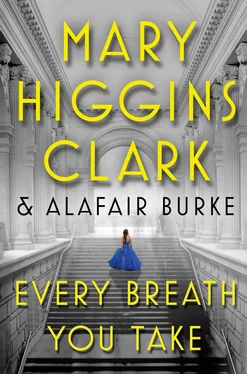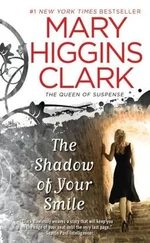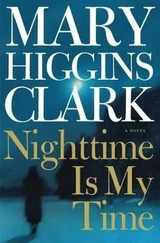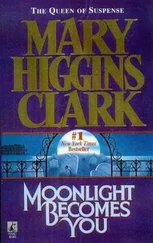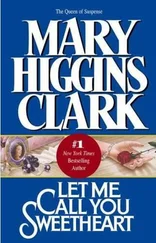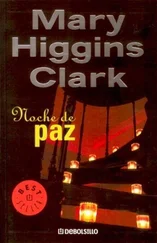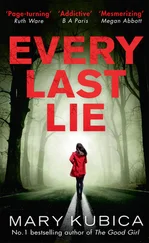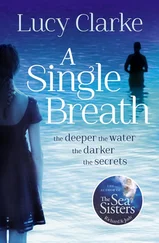“Trust me, Jerry, I know. But we can’t even be sure the museum will let us film there—”
“Then let me find out. I can make some calls.”
Laurie rarely cut Jerry off, but she found herself holding up a palm now. She knew that the Met Gala was the museum’s biggest fundraising event of the year. She knew it drew top celebrities and the city’s most generous donors. She knew that people held viewing parties at home to weigh in on the red carpet’s fashion hits and misses. And as a member of the museum’s board of trustees, Virginia would have been front and center on the red carpet. Laurie didn’t need Jerry to tell her all the reasons the case would make for great television.
“Laurie,” Jerry said persuasively, “I’m not telling you how to run your show, but normally you’d at least want to do some research before making a decision. Look, I know we just got off the high of clearing an innocent person with our last episode. But that’s not always going to be the case. Sometimes the ones under suspicion are the ones who actually did it. If Ivan’s guilty, then if anything our show could help prove that.”
“Sure, in theory. But Ryan’s obviously biased. He’s got his little bromance going with his new favorite trainer. Maybe if we still had Alex,” Laurie countered.
“Well, that ship has sailed.”
Laurie felt the immediate sting of those words, but didn’t blame Jerry. He only meant that Alex was gone from the show. He had no way of knowing that he might be gone entirely from her life.
“Ryan has worked out better than we thought,” Jerry said. The ratings for their last episode were just as strong as the most recent show featuring Alex in the role of narrator.
“Granted that’s true,” she conceded, “but Ryan’s not objective. I fought him tooth and nail on the last special because he was so sure he was right—and he wasn’t. I can already see the same thing happening again with Ivan, but this time would be worse. Ryan would be the trusted contact person with the central suspect.”
Jerry nodded, showing that he got her point. It would be one more step toward turning over control of her show to someone else.
“So, okay then. No Virginia Wakeling investigation. We’ll find something else.”
He was about to leave her office when she stopped him. “See if you can find out if filming at the Met is even a possibility.”
He looked surprised by the request, as if he’d thought the subject had been put to rest.
“I’m the one preaching about keeping an open mind, right?” Laurie asked. “Might as well start now.”
6
Once she was alone, she sat at her desk and looked at the framed picture she kept there. It was a picture of Greg with Timmy and her at a friend’s beach house in the Hamptons. Only three months later, a man would approach Greg while he pushed Timmy on a playground swing set and end his life with a single shot to the forehead.
After Greg died, she went through a period where she could barely make herself work, and then suffered a string of failures at the studio. She realized that she had been holding back her best idea—a show that reinvestigated cold cases through the eyes of the people affected by them—because she was afraid of being seen as the damaged widow, immersing herself in unsolved murders because she still had no idea who killed her husband.
Once she finally launched the program, it was a hit. More surprisingly, the police were finally able to identify the killer whom Timmy had described only as Blue Eyes. Since then, she saw Under Suspicion as more than just a job. She saw it as a way to help people.
Now looking at Greg’s face in that photograph, she finally realized what was really bothering her about the Virginia Wakeling case. It wasn’t entirely about Ryan’s involvement. It was the way the case came to her—with an introduction to Ivan Gray. Yes, Ivan had said that he loved Virginia and wanted to marry her. But he sounded more like a man who wanted to clear his name than a man who had lost the woman he wanted to spend the rest of his life with.
She wasn’t attached to the case, because she didn’t yet feel a connection to anyone who was affected by Virginia Wakeling’s death.
But Ivan Gray wasn’t the only person in Wakeling’s life.
She opened her Internet browser and Googled Virginia Wakeling obituary . The write-up in the New York Times was lengthy. She couldn’t help but notice that it began, not with any accomplishments of Virginia’s, but with a summary of the work done by her husband, Bob. The developer had made a fortune by transforming what was once a run-down industrial area of Long Island City into a thriving neighborhood of high-rise luxury apartments and trendy restaurants, all within minutes of Manhattan.
The obituary then went on to note Virginia’s work as a philanthropist after she was widowed five years earlier. She endowed a charity that promoted childhood literacy by providing new books to inner-city children. She was recently honored by Dress for Success, a charity that provided professional attire to women working toward self-sufficiency. A long list of arts and cultural organizations and institutions followed. Mrs. Wakeling is survived by her daughter, Anna Wakeling; son-in-law, Peter Browning; son, Carter; and grandchildren, Robert III and Vanessa .
It was too early to know whether Ivan Gray could be trusted or not, but she believed him about one thing: Virginia had spent decades as a wife and mother, and had begun a remarkable new phase of life on her own. She had to have been loved, if not by Ivan, then by others. She had two children who lost their father, and then their mother only five years later. They, like Laurie and Timmy at one time, went to bed each night unsure about who had killed their mother, if indeed anyone had killed her, and why.
When she looked at the case from their perspective, and not Ivan’s, Laurie found herself caring. She had promised to keep an open mind, and now she would.
7
Leo Farley hopped into the car waiting for him outside the building on Randall’s Island feeling as if he were twenty years younger.
He was sixty-five years old. If someone had asked him a decade earlier to look into a crystal ball and envision his retirement, he never would have predicted his current life. His wife, Eileen, died much too young. Then his daughter’s husband, Greg, was murdered, under circumstances none of them could have predicted. Leo had never been the planning type, but he had always assumed he would still be on the job by the time his number came up.
But, contrary to what he had expected, he had retired six years ago, at the age of fifty-nine, to help his daughter, Laurie, raise her son, Timmy. He went from roll calls and classified briefings to oatmeal breakfasts, walks to St. David’s, and chicken dinners at his daughter’s apartment.
He was an apple who never thought he’d be an orange. He had gone from being the first deputy commissioner of the NYPD to being a retiree who was helping raise his grandson. But then, three months ago, he had been invited to join an anti-terrorism task force with the NYPD, with headquarters right across the Triborough Bridge from the Upper East Side. He would work several evenings each month, such as tonight, and could do much of his work from home, leaving plenty of time to be around for Timmy and Laurie.
• • •
By the time he got back to Manhattan, Laurie already had dinner on the table.
“If I didn’t know better,” he said, stepping into her apartment, “I would think my daughter had learned how to cook.”
Laurie was a woman of many talents, but they weren’t found in the kitchen. “I’m tempted to tell you that I found a new recipe,” she said.
Читать дальше
